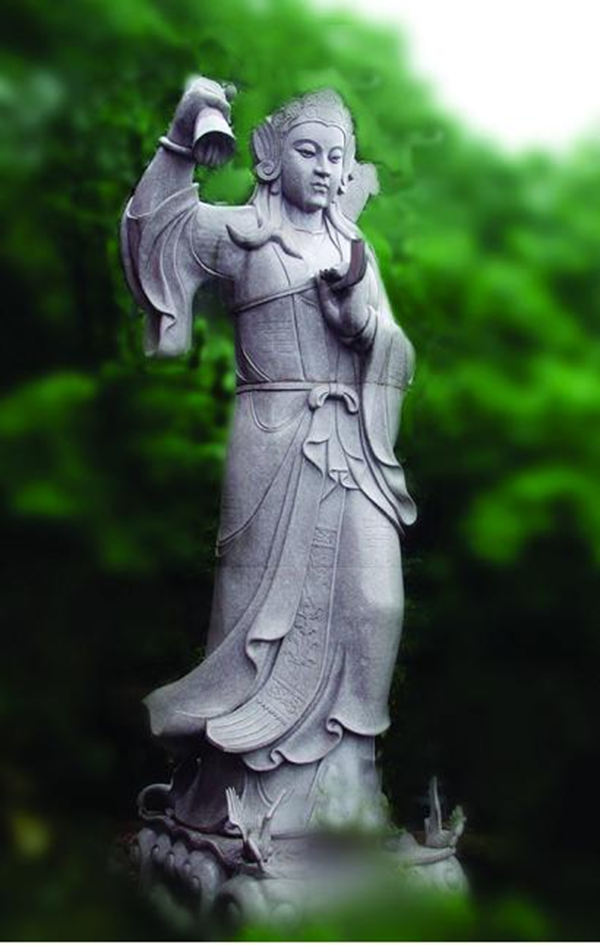
The statue of Chen Jinggu. [Photo/fujian-szwhg.chaoxing.com]
Chen Jinggu belief and customs, predominantly practiced in Fujian and Taiwan, has been recognized as a representative national intangible cultural heritage item under the category of folk customs.
According to legend, Chen Jinggu was born on the fifteenth day of the first lunar month in Cangshan district, Fuzhou city, in 767 AD. During her brief life, she was known for promoting good deeds, protecting the vulnerable without bias, and mostly for assisting with childbirth. Revered after her death, she became a deity worship for safeguarding women and children. The folklore surrounding Chen Jinggu has evolved into a shared cultural phenomenon across the Taiwan Strait and even in Southeast Asia.
Fujian is home to numerous historical sites and relics associated with Chen Jinggu, including her birthplace and various temples. Every fifteenth day of the first lunar month, women from Fuzhou visit Chen Jinggu temples to pray for peace and blessings. In some villages, residents carry a palanquin in procession, touring the countryside, while in others, neighboring villages take turns hosting the palanquin before returning it to the temple after several days. The festive celebrations can sometimes last for more than half a month.
Promoting the culture of Chen Jinggu holds significant value in fostering social harmony, stabilizing the social environment, and strengthening cultural identity across the Taiwan Strait and among overseas Chinese communities.

Copyright © General Office of Fujian Provincial People's Government
Website Identification Code 3500000049Registration Number: 15003084
All rights reserved. The content (including but not limited to text, photo, multimedia information, etc) published in this site belongs to fujian.gov.cn.
Without written authorization from fujian.gov.cn, such content shall not be republished or used in any form.